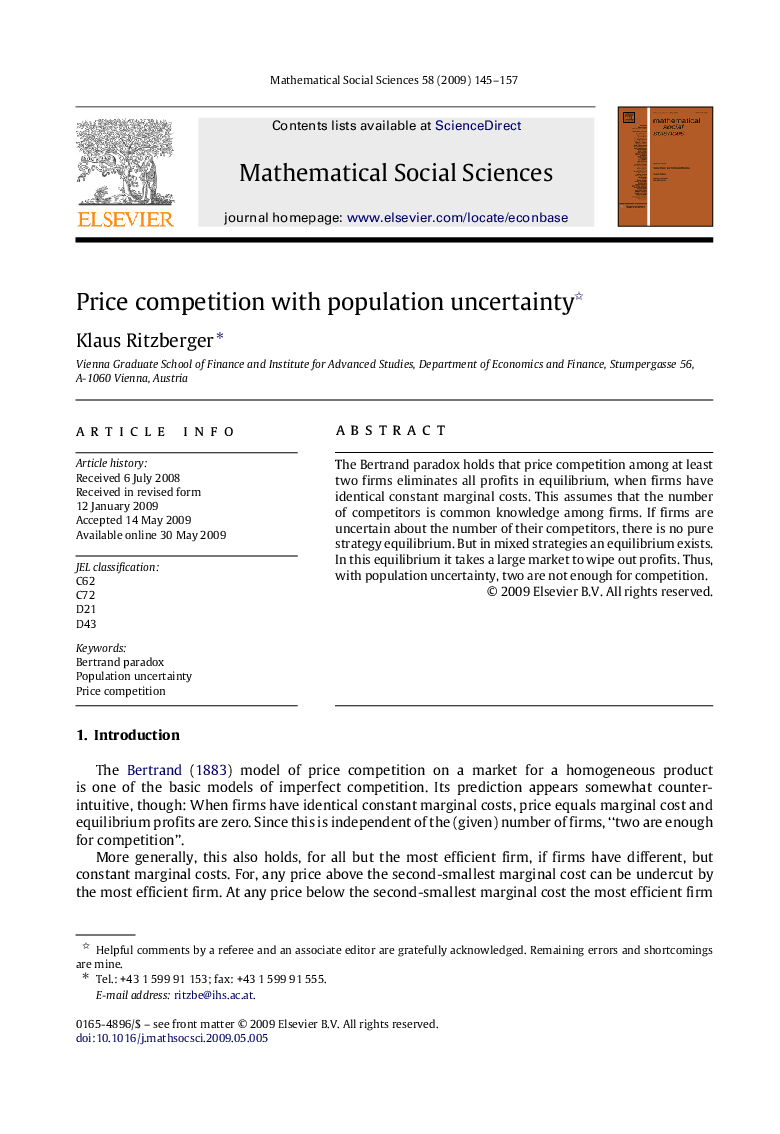| Article ID | Journal | Published Year | Pages | File Type |
|---|---|---|---|---|
| 972296 | Mathematical Social Sciences | 2009 | 13 Pages |
Abstract
The Bertrand paradox holds that price competition among at least two firms eliminates all profits in equilibrium, when firms have identical constant marginal costs. This assumes that the number of competitors is common knowledge among firms. If firms are uncertain about the number of their competitors, there is no pure strategy equilibrium. But in mixed strategies an equilibrium exists. In this equilibrium it takes a large market to wipe out profits. Thus, with population uncertainty, two are not enough for competition.
Related Topics
Physical Sciences and Engineering
Mathematics
Applied Mathematics
Authors
Klaus Ritzberger,
